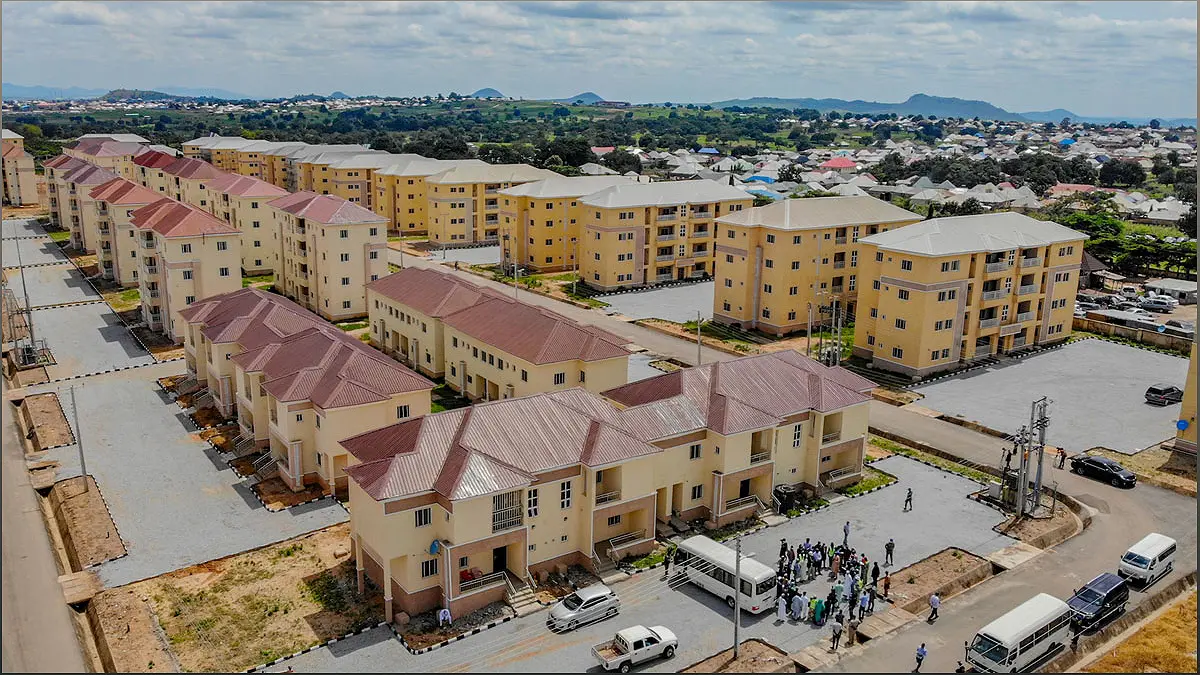In the last three decades, Nigeria has been grappling with a staggering housing deficit that continues to rise. With an estimated 28 million housing shortage, the government's renewed hope initiative aims to bridge this gap. However, to effectively address the housing crisis, we must confront key challenges in the real estate sector. This article delves into the issues surrounding land laws, land title processing, rising building material prices, and the need for a vibrant mortgage culture. Join me as we explore potential solutions to Nigeria's housing deficit.
Reviewing Existing Land Laws
Understanding the challenges posed by the Land Use Act of 1978 and the need for comprehensive land use planning and management.
The Land Use Act of 1978 was intended to promote economic development and equitable land utilization in Nigeria. However, it has created complexities and inconsistencies in land laws, hindering homeownership and land access for Nigerians.
One major issue is the lack of uniformity in laws governing land use and ownership. This has led to uncontrolled speculation in urban land and problems with land rights and ownership. Additionally, inadequate data on land use and ownership further compounds the problem.
To address the housing deficit, it is crucial to review and update existing land laws. This includes streamlining land use planning, ensuring equal access to land rights, and improving data collection for effective land management.
Streamlining Land Title Processing
Exploring the challenges faced by real estate investors in obtaining government-approved land titles and the need for simplified and digitalized processes.
Obtaining approved government titles for real estate investments in Nigeria can be a daunting and frustrating process. Bureaucracy and bottlenecks often hinder progress, causing delays and financial setbacks.
To address this issue, there is a pressing need to streamline land title processing. This involves simplifying and digitalizing the property registration process, reducing human involvement, and eliminating corrupt practices.
By improving the efficiency and accessibility of land title processing, real estate investors can proceed with their projects smoothly, contributing to the reduction of the housing deficit in Nigeria.
Addressing Rising Prices of Building Materials
Examining the impact of skyrocketing building material costs on real estate projects and the importance of promoting local production and affordable alternatives.
The escalating prices of building materials have become a significant obstacle for real estate developers in Nigeria. Many projects are abandoned due to the high cost, leading to a further strain on the housing deficit.
To tackle this challenge, it is crucial to encourage local production of building materials under expert supervision. This ensures the use of high-quality materials and modern construction techniques, reducing costs and enhancing the overall quality and safety of buildings.
Additionally, addressing the foreign exchange crisis and reducing reliance on imported materials can help stabilize prices and make housing more affordable for Nigerians.
Revitalizing the Mortgage Culture
Exploring the need for a vibrant and accessible mortgage system to enable low-income earners to achieve homeownership and bridge the housing gap.
In Nigeria, the current mortgage system poses significant challenges for low-income earners. With high interest rates and limited access to financing, many Nigerians struggle to afford a home.
To address this issue, there is a need to revitalize the mortgage culture in Nigeria. This includes reviewing the National Housing Fund Scheme to better cater to low-income earners and exploring mortgage refinancing options.
By restructuring the mortgage system and making it more accessible and affordable, more Nigerians can fulfill their dream of homeownership, contributing to the reduction of the housing deficit.
Embracing Social Investment in Housing
Highlighting the importance of viewing housing provision as a social investment rather than a profit-driven venture to ensure affordable homes for vulnerable Nigerians.
It is crucial for the government to prioritize housing as a social investment rather than solely focusing on revenue generation. This shift in perspective is essential to provide affordable homes for vulnerable Nigerians.
By adopting models that prioritize social investment, such as those used by the Late Alhaji Lateef Jakande, we can ensure that working-class Nigerians have access to affordable housing options.
Creating robust partnerships with private real estate developers and offering subsidized land and finance will further support the provision of affordable homes, bridging the housing deficit in Nigeria.

